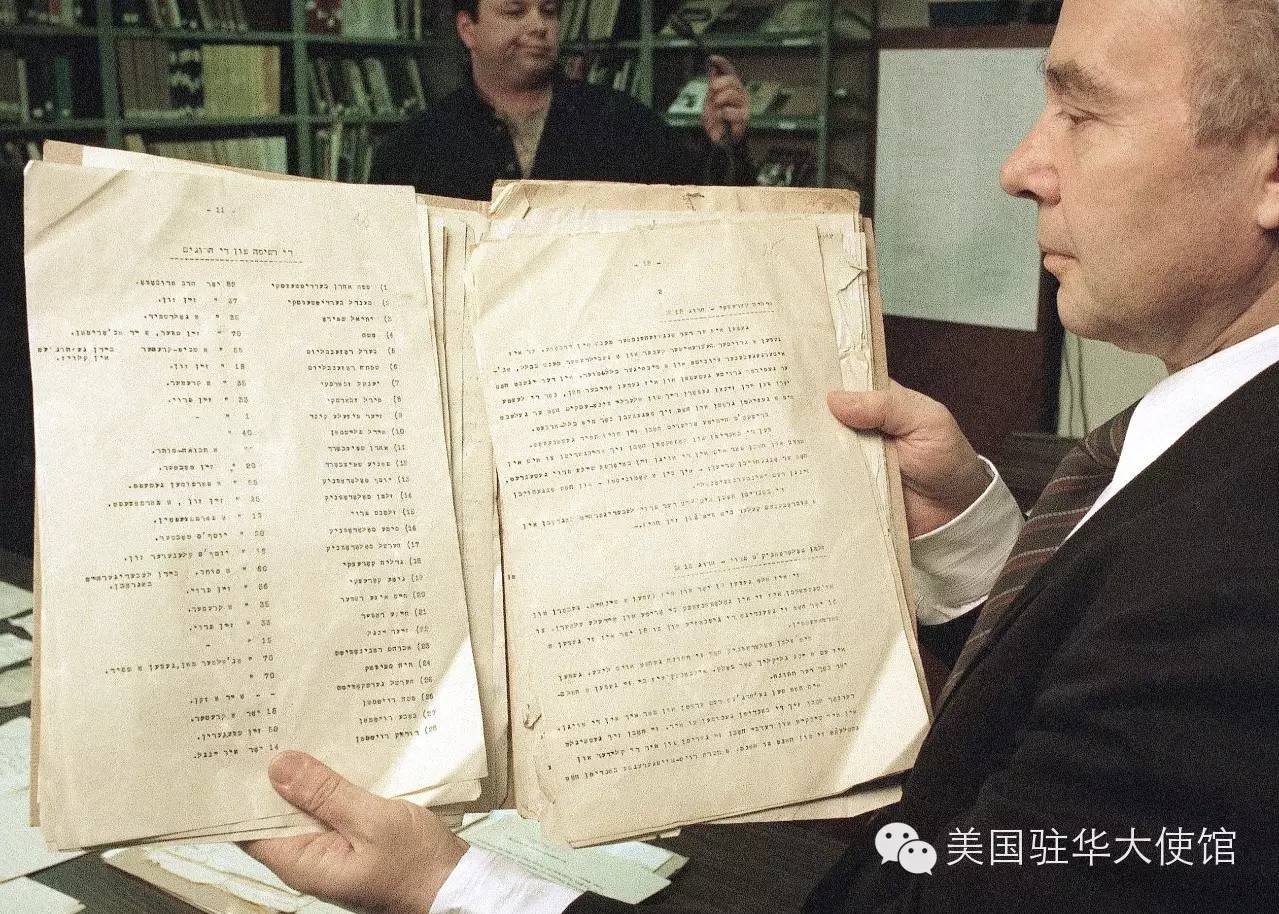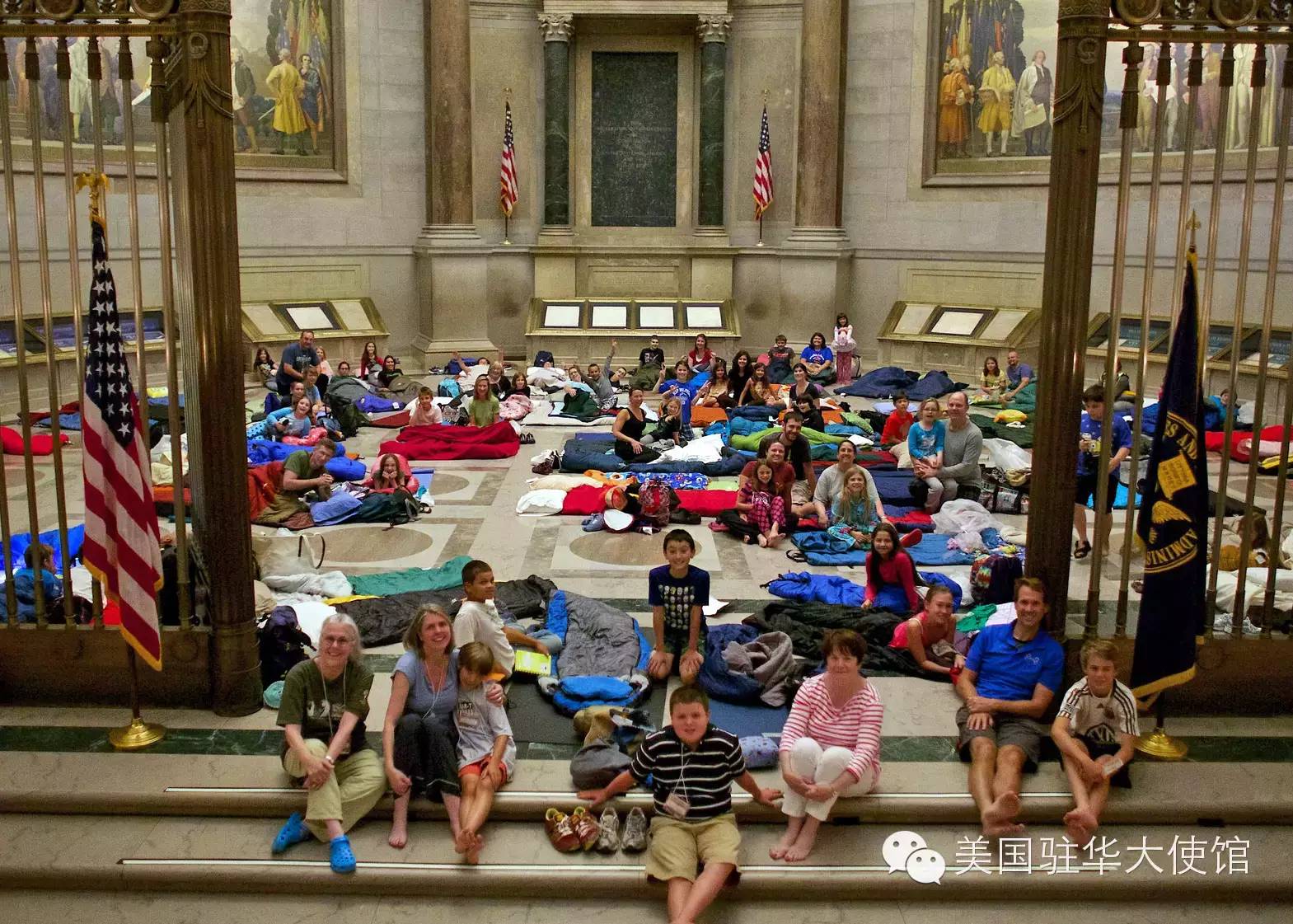一个方便查询的档案库对每一个有着复杂历史的国家都有重要作用,乌克兰也不例外。因此,美国正在与乌克兰的档案工作者合作,保护乌克兰历史并使档案资料更容易让所有乌克兰人查询。

一位档案工作人员正在仔细查看一份曾丢失的文档,上面列有1919年发生在乌克兰小镇杜布瓦(Dubova)的大屠杀的遇难者名单。(© AP Images)
前美国档案工作者特鲁迪·彼得森(Trudy Peterson)和她的同事并不想遮掩美国历史上的艰难时期。事实上,美国国家档案馆(U.S. National Archives)收集和保存着政府史料——从文件和羊皮文献到电影和照片,叙述美国的历史,其中包括一些不光彩的时刻。这些信息向所有美国民众开放。现任美国档案工作者大卫·菲利尔罗(David Ferriero)说,“这使得美国人民和世界人民能基于这些档案做出自己的判断。”
彼得森和菲利尔罗最近就档案管理和档案库在社会中的作用主持了一次与乌克兰档案工作者的讨论。彼得森说,虽然2015年初乌克兰通过了《数据公开法》(Open Data Law ),向公众提供政府档案迈出了积极的一步,但是还有更多的工作需要做。
她说,乌克兰需要“有一个能够独立存在、起作用、活跃的专业协会,使档案专业人员可以互相对话”。她希望乌克兰能与国际标准做法接轨,并让乌克兰的档案工作者加入有关记录历史的国际性讨论。
公民档案工作者
菲利尔罗建议乌克兰的档案工作者“要让民众了解国家档案和其可获得性”。途经之一是让公众参与档案人员的工作。例如,美国国家档案馆推出了 “网上公民档案工作者”活动(Citizen Archivist Dashboard),让各年龄段的公民都可以来帮助做归类、听写记录、提供图解说明和翻译电子版本的历史文献等工作。菲利尔罗说, “全美国和世界各地数以千计的人都在帮助我们工作。”

美国国家档案馆举办过夜活动,以提高人们对美国立国文献的认识。(U.S. National Archives)
菲利尔罗并不认为人们会自动查询档案库的在线目录,所以他致力于让档案的内容“到达需要的人手里”。他的工作人员和维基百科(Wikipedia)紧密合作,并有一个负责维基百科相关事务的专职人员确保信息的准确性。大约4500条维基百科的词条包含来自美国国家档案馆的信息。
菲利尔罗说,在乌克兰,面向公众的教育活动需要得到法律的支持。乌克兰的档案工作者可以推动进行新的立法,也可以凝聚公众支持以改变不适宜的现行法律。
菲利尔罗说,档案工作者最大的道德责任是,在收集档案和向公众开放档案时不带偏见。档案工作者必须记录历史的两面,即“正面历史和反面历史”。
关注有关乌克兰的对话@UnitedforUkr,并订阅每周更新的United for Ukraine。
Archivists document a nation’s history — the good and the bad
An accessible archive is an important part of any country with a complex history, including Ukraine. So the United States is working with archivists in Ukraine to preserve the country’s history and make it more accessible to all Ukrainians.

An archivist looks over a once-lost document listing victims of a 1919 pogrom
in the Ukrainian town of Dubova. (© AP Images)
Trudy Peterson, former archivist of the United States, and her peers do not try to hide the difficult times in American history. In fact, the U.S. National Archives collects and preserves government records — from documents and parchment to film and photographs — that tell the nation’s history, including some ignominious moments. That information is made available to all American citizens. “It’s all out there for the American public, for the world to make their own decision based on the documentation available to them,” said current Archivist of the United States David Ferriero.
Peterson and Ferriero recently led discussions with Ukrainian archivists on records management and the role of archives in society. While Ukraine’s passage of the Open Data Law in early 2015 is a positive step toward making government records available to the public, much more work needs to be done, said Peterson.
She said Ukraine needs “to have a viable, functioning and active professional association so that professional archivists can talk to one another.” She hopes to see Ukraine bring its practices in line with international standards and integrate Ukrainian archivists into international discussions about documenting history.
Citizen archivists
Ferriero advised Ukraine’s archivists to “inform citizens about the records of the country and about access to them.” One way is to get the public involved in the work of archivists. The U.S. National Archives, for example, promotes an online “Citizen Archivist Dashboard” through which citizens of all ages can help tag, transcribe, caption and translate electronic historical records. “Thousands of people across the country and across the world are helping us do our work,” Ferriero said.

The U.S. National Archives hosts a sleepover to raise awareness of America’s founding documents. (U.S. National Archives)
Ferriero doesn’t expect people to automatically comb the archives’ online catalog, so he makes sure the archives’ content “is where the people are.” His staff works closely with Wikipedia and has a full-time Wikipedian to monitor information for accuracy. Roughly 4,500 Wikipedia entries contain information from the archives’ documents.
A public education initiative in Ukraine would need to be supported by laws, Ferriero said. Ukrainian archivists can help shape laws that don’t yet exist or rally the public for changes to any existing laws that are not appropriate.
Ferriero said the biggest ethical responsibility of archivists is to ensure that no bias is brought to the work of collecting records and making them accessible. Archivists must document both sides of history, both “the good stories and the bad stories.”
Follow the conversation on Ukraine @UnitedforUkr and sign up for weekly updates on United for Ukraine.

发表评论